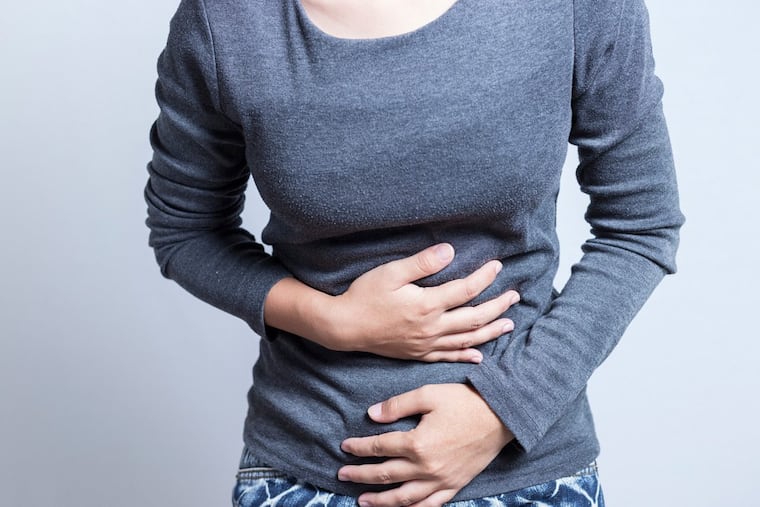Medical Mystery: What caused healthy woman's severe diarrhea, abdominal pain?
The patient had to use the bathroom at least 10 times a day. Her appetite vanished, and she developed severe abdominal pain. When she noticed she was too weak to care for her children, she came to the ER.

A woman in her early 30s came to the emergency room after experiencing abdominal cramps associated with watery diarrhea. She had been feeling nauseated and had not been eating or drinking much for about a week, and had a fever for three days.
While in the emergency room, she was extremely tired and barely responsive. Her heart rate and respiratory rate were higher than normal, and her blood pressure was significantly low. Her entire abdomen was tender upon examination, and her bowel sounds were more active than normal. She was severely dehydrated; her mouth and her skin were very dry.
Her blood work showed an elevated white-cell count, which is an indication of a possible infection. The results also showed her kidney function was reduced because of severe dehydration.
We immediately placed her on IV fluids and antibiotics and took stool and blood samples, as we thought she may have an infection. After a few hours, her blood pressure and mental state started to improve, and she was able to tell me she was a mother of two with no known prior health issues.
She informed me that two weeks before, she had a decayed tooth that wound up getting infected. Before extracting the tooth, her dentist prescribed her an antibiotic to clear the infection. As prescribed, she took the antibiotic for one week, then went back to the dentist to have her tooth pulled, without any issues.
After a few days, she began to feel sick and had diarrhea that sent her to the bathroom at least 10 times a day. Her appetite vanished, and she developed severe abdominal pain. When she was too weak to care for her children, she came to the ER.
When a patient presents with infectious diarrhea, there are many possible microorganisms that can be the cause, such as viruses, bacteria and parasites. Therefore, we ask standard "social history" questions to help us identify the potential organisms.
We asked what she had eaten; she said she always cooked meals at home and had not eaten out recently. We also asked whether she had recently traveled anywhere; she hadn't. And we asked whether she had been in contact with anyone who was sick; she hadn't.
We ordered a CT scan of her abdomen, which showed inflammation and swelling of the wall of her colon. She was admitted overnight with a preliminary diagnosis of colitis, which is the inflammation of the inner lining of the colon.
But the results of her stool studies would yield a different diagnosis.
Solution:
The following morning, her stool test results showed a positive test for Clostridium difficile infection.
The colon has many types of bacteria contributing to colon health. When this natural bacterial composition is disrupted by antibiotics, those healthy germs are wiped out, allowing C. difficile to overgrow and cause an infection. The antibiotics our patient took for her tooth infection likely led to the C. difficile infection.
We immediately began treatment.
Though antibiotic use leads to C. difficile, there are only a few, very specific antibiotics used to treat it. Patients are generally put on a 10- to 14-day regimen.
By day two, our patient was able to eat and drink more than when she first arrived. On the third day, her diarrhea resolved and her kidney function returned to normal. She was discharged from the hospital in stable condition.
C. difficile can be transmitted by health-care workers that carry this bacterium. People also can get infected if they touch contaminated surfaces — such as gym equipment — then touch their mouths or mucous membranes. So hand hygiene is crucial in preventing the spread of these germs.
The elderly and those with weakened immune systems are at higher risk of infection. However, even healthy people can get C. difficile, causing a mild infection to a very severe or even life-threatening condition. The typical symptoms are abdominal pain, watery diarrhea, nausea, loss of appetite, and fever.
It is very important for all patients and health-care providers to remember that antibiotics can have unwanted consequences, including a C. difficile infection.
Gul Madison, MD, is an infectious-disease specialist at Mercy Philadelphia Hospital.